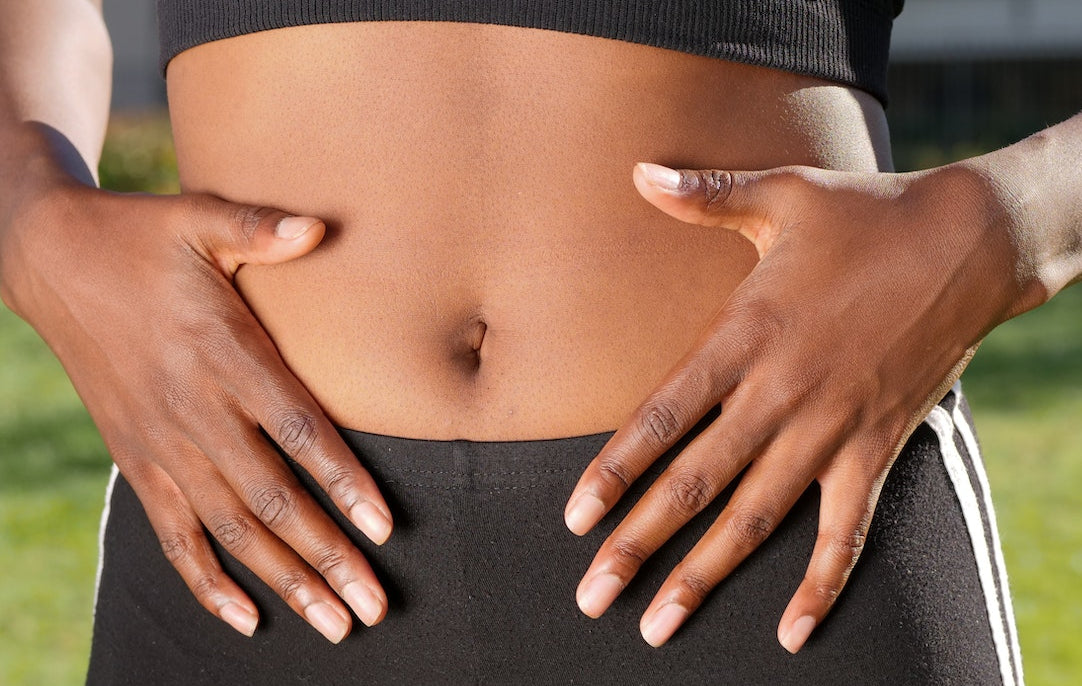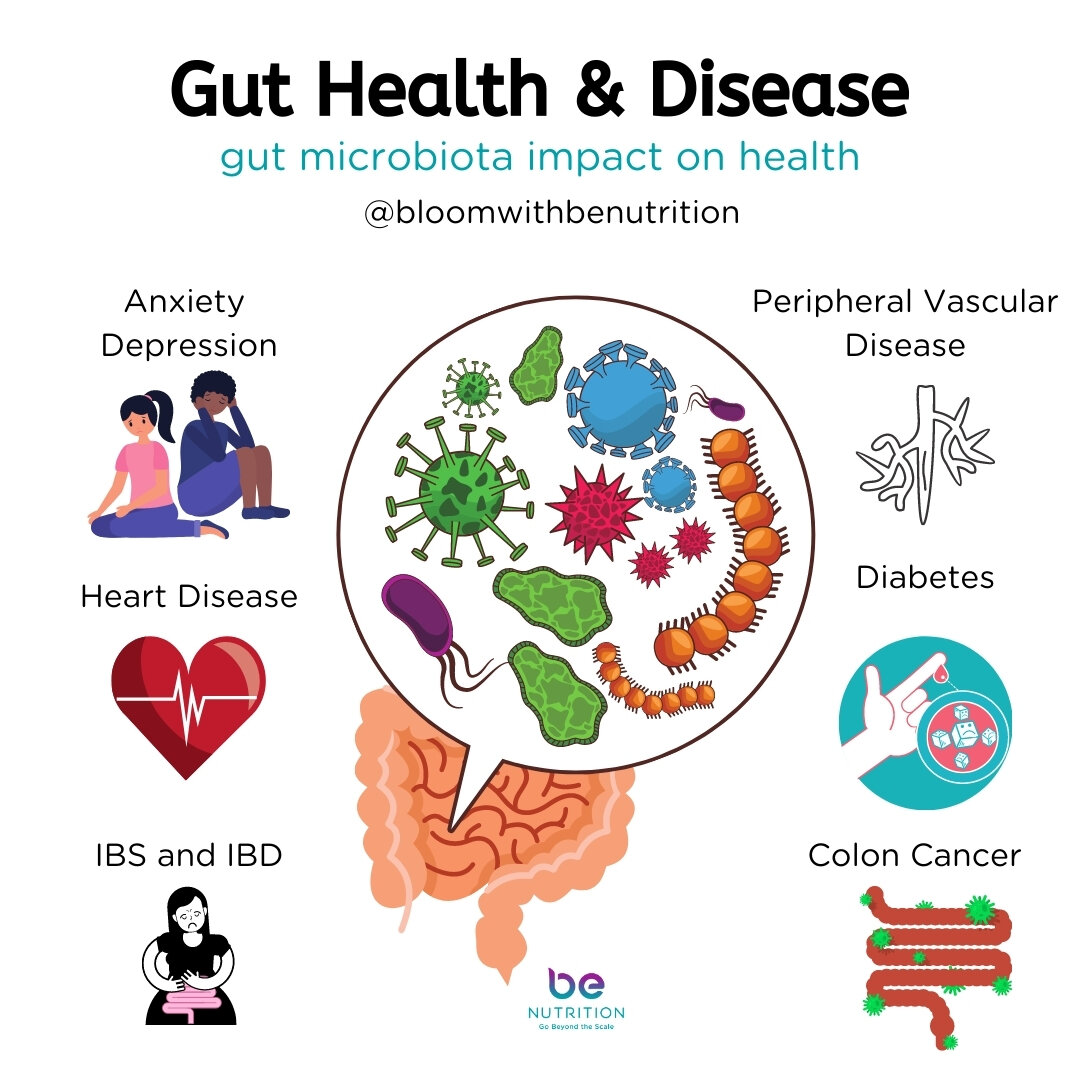Running low on quality sleep causes a myriad of health problems.
Did you know that poor gut health is one of them? Creating a happy gut is tied to how well you’re sleeping, and vice versa.
Recent research suggests that the two are interconnected via the gut microbiome. Trillions of bacteria and organisms live within the gut – and they send messages to the rest of the body and brain.
The range of “good” versus “bad” microbes within the gut is tied to how well you sleep.
Therefore, many scientists believe that improving the health of your gut microbiome can improve sleep quality.
On the flip side, a lack of sleep impacts digestive health by causing gastrointestinal diseases, obesity, and more.
Just as your sleep and wake rhythms rely on an internal clock, so does your gut.
Changes to your sleep-wake patterns are proven to negatively affect the gut, while changes in your eating schedule lead to sleep loss and insomnia.
So how do you know if you have a happy gut or an unhappy one?
Signs of Poor Gut Health
When your body doesn’t have enough good bacteria in the gut, bad bacteria take over.
Good bacteria aid in digestion and absorption while boosting health and immunity.
Bad bacteria have adverse effects on the body if they take over the gut, leading to disease and illness.
Poor gut health occurs due to a gut bacteria imbalance. As a result, the key to a happy gut is a balanced gut.
Additional symptoms of an unbalanced gut include:
- Digestive issues like gas, bloating, irritable bowel syndrome, diarrhea, or constipation
- Heartburn
- Autoimmune conditions, including thyroid issues or type 1 diabetes
- Unexplained weight gain or weight loss
- Sudden mood disorders, such as depression or anxiety
- Unexplained chronic fatigue
- Sugar cravings
- Skin rashes or allergies
- Sleep issues
An unhappy gut means an unhappy night’s rest. Here’s why.
How Gut Health Influences Sleep
Research strongly details that the makeup of your gut microbiome influences how well or poorly you sleep at night.
One study analyzed participants’ gut bacteria and recorded their sleep patterns over a 30-day period.
They found that participants with a diverse gut microbiome slept longer and experienced better sleep efficiency when compared to those lacking bacteria diversity within the gut.
Additional research analyzed the connection between gut bacteria, sleep, and the neurotransmitter serotonin.
Serotonin helps to regulate our sleep cycle, while the gut is involved in regulating the amount of serotonin within the body. In fact, the majority of serotonin is produced in the gut.
An additional study on mice with poor gut health due to antibiotic use found that they also had lower levels of serotonin that disrupted their sleep cycles.
While the results of the study have yet to be replicated in humans, this research establishes on possible route for further understanding how poor gut health diminishes sleep quality.
Furthermore, there may be a link between poor gut health and the development of sleep disorders like sleep apnea.
An article published in February 2022 in the Journal of Clinical Sleep Medicine detailed that those with sleep apnea have a gut microbiome that highly differs from people without disrupted sleep.
Although research supports the tie between sleep and the gut microbiome, it’s still not clear whether gut health influences sleep or if sleep patterns influence gut health.
How Lack of Sleep Affects Gut Health
When we’re short on sleep, stress levels rise.
Stress throws off our hormones which, in turn, throws off gut microbiome balance.
Lack of sleep increases the stress hormone cortisol. High levels of cortisol cause inflammation of the digestive tract while further disrupting the balance of the gut microbiome.
Stress may even affect the muscles within the intestines, which prevents the bowels from filtering out harmful bacteria.

Bloating, inflammation, stomach pain, food sensitivities, and an unhappy gut follow. Aside from high cortisol, lack of sleep may also disturb melatonin levels.
This sleep hormone is famous for causing the sleepy, groggy feeling at night that inhibits sleep. But that’s not all it does: melatonin assists in regulating gastrointestinal mobility.
Therefore, some researchers believe that gastroesophageal reflux disease, also called GERD, may be partially caused by dysregulated melatonin levels associated with sleep habits.
In theory, if you regulate your sleep cycles and improve sleep hygiene, melatonin levels may balance out (along with digestive issues).
Probiotics and prebiotics can help both gut health and sleep quality via gut health improvement.
Best Prebiotic Supplements and Probiotic Supplements For Gut Health
If you want to improve your gut health and, in turn, your sleep quality, select the best prebiotic and probiotic supplements and incorporate them into your daily routine.
Prebiotics contain fiber that “feeds” the bacteria in your gut while encouraging a diverse microbiome.
Some of the best prebiotic supplements on the market today come in pill or powder form, making them easy to incorporate into your schedule.
Athletic Greens AG1, which doubles as a prebiotic and superfood powder, provides optimal nutrition and gut health balance in one supplement.
Another category of the best prebiotic supplements on the market? Multivitamins that double as prebiotics.
Kaged Multivitamin, for example, offers 21 essential vitamins and minerals, including prebiotic fiber.
While prebiotic supplements are widely used, the best prebiotic supplements are the foods you chose to eat.
Prebiotic foods include:
- Chicory Root
- Asparagus
- Onions
- Garlic
- Apples
- Bananas
- Flaxseeds
- Chickpeas and lentils
- Barley, oats, and rye
Probiotics, on the other hand, enhance the diversity of your digestive tract thanks to live microbes that camp out in your gut.

While probiotic supplements are just as readily available as prebiotic supplements, many people prefer to consume probiotic-rich foods for a happy gut.
Probiotics are found in fermented food and drinks, such as:
- Yogurt
- Kimchi
- Kombucha
- Sauerkraut
- Sour pickles
- Pu’er tea
- Parmesan cheese
- Aged cheddar cheese
- Swiss cheese
As you cultivate a healthy gut, build healthy sleep hygiene to ensure that your sleep patterns and gut microbiome stop negatively influencing one another.
Establish Healthy Sleep Habits For a Happy Gut
Creating and maintaining healthy sleep habits is a major key to achieving a happy gut.
If you want to jump-start your sleep hygiene with a few quick lifestyle changes, avoid blue light from electronics at night, seek out morning sunlight, and steer clear of caffeine after lunch.
Once you’ve mastered those, turn your focus toward your breathing habits. Sleep-disordered breathing wrecks your sleep more than you may realize.
Overnight mouth breathing causes poor oxygenation and over breathing. Moreover, it leads to snoring and fragmented sleep.
Nasal breathing is the optimal way to breathe, whether you’re awake or asleep. The nose acts as a filtration and warming system for the air we inhale, which boosts oxygenation.
Nasal nitric oxide produced while nasal breathing acts as a vasodilator and stress reduction tool.
As a result, the oral microbiome becomes more balanced – and more balanced gut health follows.
But how do you maintain nasal breathing while you’re asleep?
Mouth tape provides an adequate lip seal that prevents overnight mouth breathing and open-mouth snoring.
@somnifix Mouth taping at night upgrades #sleepquality , reduces #snoring , prevents #cavities , & even protects your #gutmicrobiome according to @drscottbeyer ♬ Blade Runner 2049 - Synthwave Goose
There’s just one problem. Most tapes irritate the skin, causing irritation and (in some cases) rashes.
SomniFix is free from irritating chemicals and was created specifically for sensitive skin. Our Strips are free from both gluten and latex.
They’re hypoallergenic and feature a gel-like adhesive and patented central breathing vent that helps you get used to the sensation of mouth taping during sleep.
Achieve your best, snore-free sleep yet with SomniFix tonight. Your gut will thank you!





